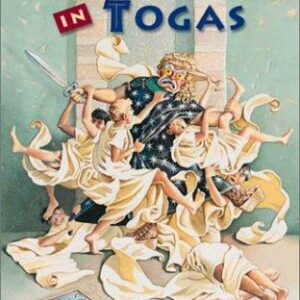Description
Co-winner, Latino Politics Best Book Award, American Political Science AssociationThe first book about the Mexican American Legal Defense and Educational Fund, the influential work it has done for the Latina/o community, and the issues stemming from its dependence on large philanthropic organizations. Founded in 1968, the Mexican American Legal Defense and Educational Fund (MALDEF) is the Latino equivalent to the NAACP: a source of legal defense for the Latina/o community in cases centered on education, state immigration laws, redistricting, employment discrimination, and immigrant rights. Unlike the NAACP, however, MALDEF was founded by Mexican American activists in conjunction with the larger philanthropic structure of the Ford Foundation—a relationship that has opened it up to controversy and criticism.
In the first book to examine this little-known but highly influential organization, Benjamin Márquez explores MALDEF’s history and shows how it has thrived and served as a voice for the Latina/o community throughout its six decades of operation. But he also looks closely at large-scale investments of the Ford Foundation, Rockefeller Foundation, and others, considering how their ties to MALDEF have influenced Mexican American and Latinx politics. Its story crafted from copious research into MALDEF and its benefactors, this book brings to light the influence of outside funding on the articulation of minority identities and the problems that come with creating change through institutional means.
The first book about the Mexican American Legal Defense and Educational Fund, the influential work it has done for the Latina/o community, and the issues stemming from its dependence on large philanthropic organizations.
Benjamin Márquez is a professor of political science at the University of Wisconsin–Madison. His books include Democratizing Texas Politics: Race, Identify, and Mexican American Empowerment, 1945–2002 and Constructing Identities in Mexican American Political Organizations: Choosing Issues, Taking Sides.
Chapter One: Cause Lawyers, Foundations, and Social Movements
Chapter Two: A Legal Defense Fund for Mexican Americans
Chapter Three: The Chicano Movement
Chapter Four: Building a Better Organization
Chapter Five: The Docket
Conclusion
Acknowledgments
Notes
Index
The Mexican American Legal Defense and Educational Fund celebrated its fiftieth anniversary in 2018, so it is a timely development to have a detailed historical narrative on its founding, including its good (many major legal victories), bad (some questionable policy decisions), and ugly dimensions (some dreadful board behavior). Fortunately, there have been many more important court victories and examples of significant advocacy than there have been stumbles. As in his earlier work, an authoritative history of LULAC, Benjamin Márquez has a riveting tale to tell about the most successful national Latino organization. He also makes it clear that MALDEF lawyers are focused on suing bad hombres for another fifty years and more.
Progressive support for undocumented Americans…is only recent. Not only were unions slow to come around, powerful philanthropic foundations resisted attempts by organizers to defend the undocumented. This story is played out in excruciating detail in [The Politics of Patronage].
Márquez has written a well-researched, well-documented study…[Márquez] has successfully argued that Ford Foundation funding translated into less power for MALDEF lawyers. Despite a stark contrast between community members and community interests versus MALDEF, the book details MALDEF’s critical achievements fostering Latinx political empowerment both because of Ford’s funding and in spite of Ford’s control.
The Politics of Patronage is a groundbreaking source for scholars of Mexican American civil rights and legal history…Marquez’s book successfully inserts MALDEF into the historical cannon alongside other important civil rights groups of the twentieth century, where it rightfully belongs.








